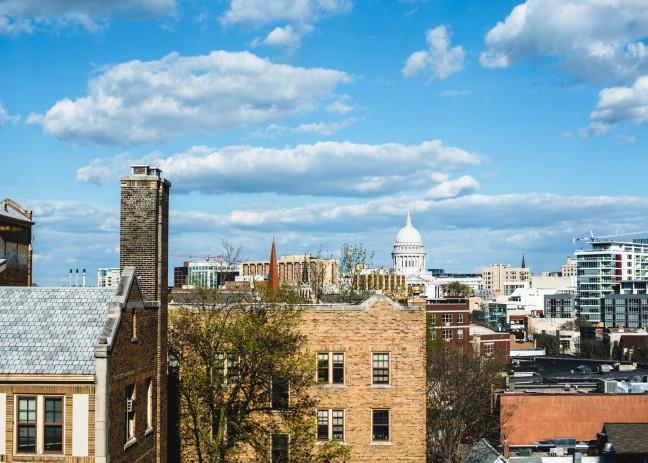In response to tech giant Amazon’s announcement that they were looking for a place to build their second North American headquarters, 238 cities and regions sent in proposals, hoping to bring in 50,000 new jobs with a six figure average salary and massive local investment. Among them was the Madison area, touting itself as a little Seattle.
The Madison Region Economic Partnership (MadREP) seems to believe that the area is just what Amazon is looking for in terms of a cultural fit, and sees the University of Wisconsin as a resource to provide the educated workforce the company needs, even though the region doesn’t technically meet all the requirements.
For example, the Madison metropolitan area falls short of the 1 million population specified without fudging the numbers by including the cities of Janesville and Beloit and some predominantly rural counties in the tally. Nor does it have an international airport, a requirement dismissed by pointing out how many destinations can be reached by connecting flights, but is probably a result of the need for a customs service.
A more important issue is that Madison and MadREP don’t seem to fully understand what having a business this size come here actually means. It’s not just 50,000 new people in 15 years. It would be several hundred thousand new people. Workers might be supporting families, and will need services. Financial planners, doctors, teachers, maids, social workers and other service providers would be in high demand.
The existing infrastructure isn’t able to handle this kind of growth, nor is it accounted for in current plans. The Madison area would likely need new highways, new power plants, an upgraded transit system, among other things and given that projects of this nature can often take over ten years just to break ground, planning would need to begin yesterday. Moreover, the state government has been unable to decide on how to adequately fund even existing transportation projects over the coming decade, let alone new ones.
Putting aside infrastructure, however, the sheer size of an Amazon headquarters makes it difficult to find a place for. Amazon’s existing Seattle headquarters takes up 8.1 million square feet of office space. In comparison, American Family Insurance’s sprawling headquarters in the northeast corner of Madison is only a sixth of that size. Madison has had a height restriction on new buildings downtown since the Atmospheric, Oceanic and Space Sciences Building and Van Hise Hall went up on campus in the mid-1960s, to protect the State Capitol as the defining feature of Madison’s skyline.
In 2005, developer Curt Brink proposed a project called Archipelago Village which would have seen Madison become home to the second tallest building in Wisconsin, a 27-story tower which, among other things, would have provided space to help draw another major corporate headquarters to the area. Opponents of the proposal complained it was too big and that ending Madison’s height restriction would change the character of the city. While the project faced other hurdles such as an airspace restriction due to the nearby location of the airport, the refusal to ease up on unnecessary limitations reveals the true face of Madison.
Being hip and environmentally friendly isn’t enough. Amazon wants a place that thinks big: the problem is that Madison doesn’t. Madison is a place that wastes money on an expensive and flashy “public market” for individuals to sell homemade gifts and vegetables from their garden. Madison is a place where perfectionist neighbors complain to city planning committees when anyone proposes building anything near them. Madison’s mayor frets over small shops declining in number on State Street when online retail like Amazon is replacing traditional retail.
While it would probably benefit UW students in the long run to have a major company in a growing industry have their headquarters nearby so they could easily recruit on campus, it’s unlikely for now. Until Madison area leaders and the wider community realize that we think too small and make an effort to change, we just don’t deserve a company like Amazon.
Amanda Love ([email protected]) is a senior majoring in mathematics.




















